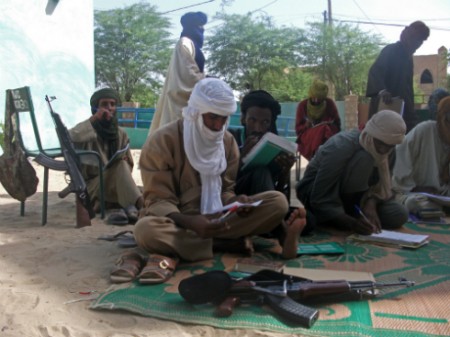
At the end of January, Twitter suspended the account of the Somali-based Al-Qaeda-linked terrorist group Al-Shabaab. The account was taken offline after the group posted a video on Twitter threatening to kill two Kenyan hostages unless the Kenyan government met its demands.
Twitter didn’t comment on the account deletion, but social-media experts reasoned that Al-Shabaab had violated Twitter’s terms of service, which prohibit direct threats of violence.
It is a pattern that has become increasingly familiar. A Facebook or Twitter account affiliated or run by a terrorist organization is thrown into the spotlight, activists and the media buzz about it, it is suspended by the social network — and then later a new account emerges.
As terrorist groups seek to reach a broader global audience, their migration onto social networks has proven to be a challenge for the likes of Twitter and Facebook. While governments want social networks to clamp down on terrorist groups, Internet activists are calling for greater transparency into social-media companies’ rules and regulations.
